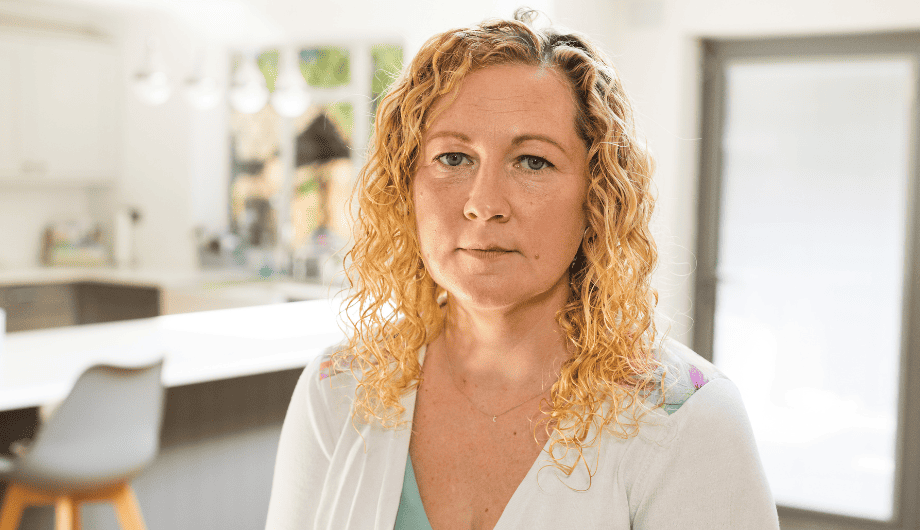
Saïna’s story – A song for my beloved grandpa, Ralph
Saïna opens up about how her grandfather’s dementia has affected her, and how songwriting has provided a release.
If you care for someone with dementia, it’s your legal right to have a Carer’s Assessment. Our dementia specialist Admiral Nurses can explain how to arrange it, and how it could help you find support as a carer. We are aware that in some areas, there are waiting lists for an assessment. While there isn’t a direct substitute for having a Carers Assessment, our Admiral Nurses can help identify your most pressing needs and suggest a plan while you are waiting.
If your need for help becomes more urgent while you are waiting for your assessment, you can:
A Carer’s Assessment is an assessment of your needs to see how your caring role impacts upon your life, and what support you might need to make it easier. It is carried out by your local council/local authority.
Even if you feel you are coping well, it’s still worth requesting a Carer’s Assessment. It means support can be put in place to help you keep caring for the person with dementia for as long as you want to.
There is another type of assessment called a Needs Assessment, which looks at what support the person with dementia needs, rather than what you need as a carer.
These are sometimes done at the same time, but if possible, arrange them separately so you can focus on your individual needs at the Carer’s Assessment.
Anyone who is over 18 and cares for someone has the legal right to a Carer’s Assessment.
You can either ask your GP or another medical professional to refer you, or request an assessment yourself by contacting Adult Social Services at your local authority.
Often, people who look after a family member or friend with dementia don’t consider themselves to be a carer, but you are a carer if you help with:
The person with caring responsibilities must consent to having a Carer’s Assessment, so if you are requesting it on behalf of a family member or friend, make sure you have their permission.
A social worker will contact you to arrange a time for the assessment, which usually takes place at home. They will also send you a form to complete in advance, or with their assistance at the appointment.
The social worker should ask you:
The more specific you can be, the better the outcome of the assessment will be, so take some time beforehand to think through everything you do and make notes to remind you on the day.
The social worker will also look around the home to see if you would benefit from any adaptations or living aids, such as equipment to help the person to use the shower or the toilet, or get in and out of bed.
After the assessment, the social worker will prepare a Carer’s Support Plan, with suggestions to help ease some of the challenges you might be facing.
This could include:
The Support Plan is designed to improve your quality of life. You should be asked for your thoughts, so make sure you share any views about what would/wouldn’t be helpful with the social worker.
Bear in mind that any changes may have to be introduced slowly and carefully to allow the person with dementia to feel comfortable, especially if you are introducing a new carer.
The local authority will carry out a financial assessment to see whether you are eligible for funding for your Support Plan.
This will be means-tested – in other words, based upon whether you are able to afford to pay for the support.
If you are eligible for funding, it will be provided by the local authority. This will be as:
Wales has the same Carer’s Assessment process as England, and you should apply in the same way.
In Scotland, you should apply through the Social Work department of your local council.
In Northern Ireland, you can request a Carer’s Assessment from the Health and Social Care Trust.
To speak to a dementia specialist Admiral Nurse about the Carer’s Assessment or any other aspect of dementia, you can contact our free Dementia Helpline on 0800 888 6678 (Monday-Friday 9am-9pm, Saturday and Sunday 9am-5pm, every day except 25th December), email helpline@dementiauk.org, or book a phone or video appointment in our virtual clinics.
Our free, confidential Dementia Helpline is staffed by our dementia specialist Admiral Nurses who provide information, advice and support with any aspect of dementia.

Saïna opens up about how her grandfather’s dementia has affected her, and how songwriting has provided a release.

Ricky’s talks about how his Gran’s dementia diagnosis impacts his whole family and why he is supporting the ‘We live with dementia’ campaign.

As a carer for her mum, who has vascular dementia, Clare is taking part in our ‘We live with dementia’ campaign to make more people aware of the support our nurses offer.